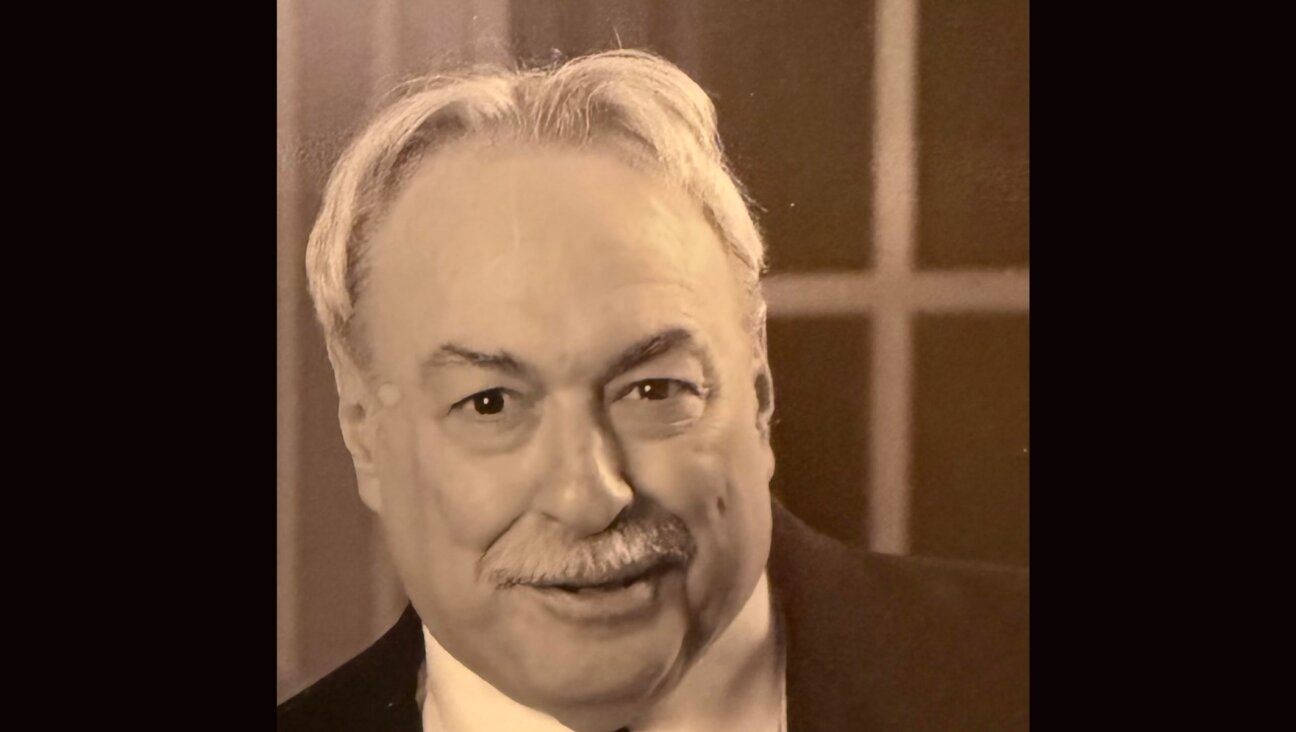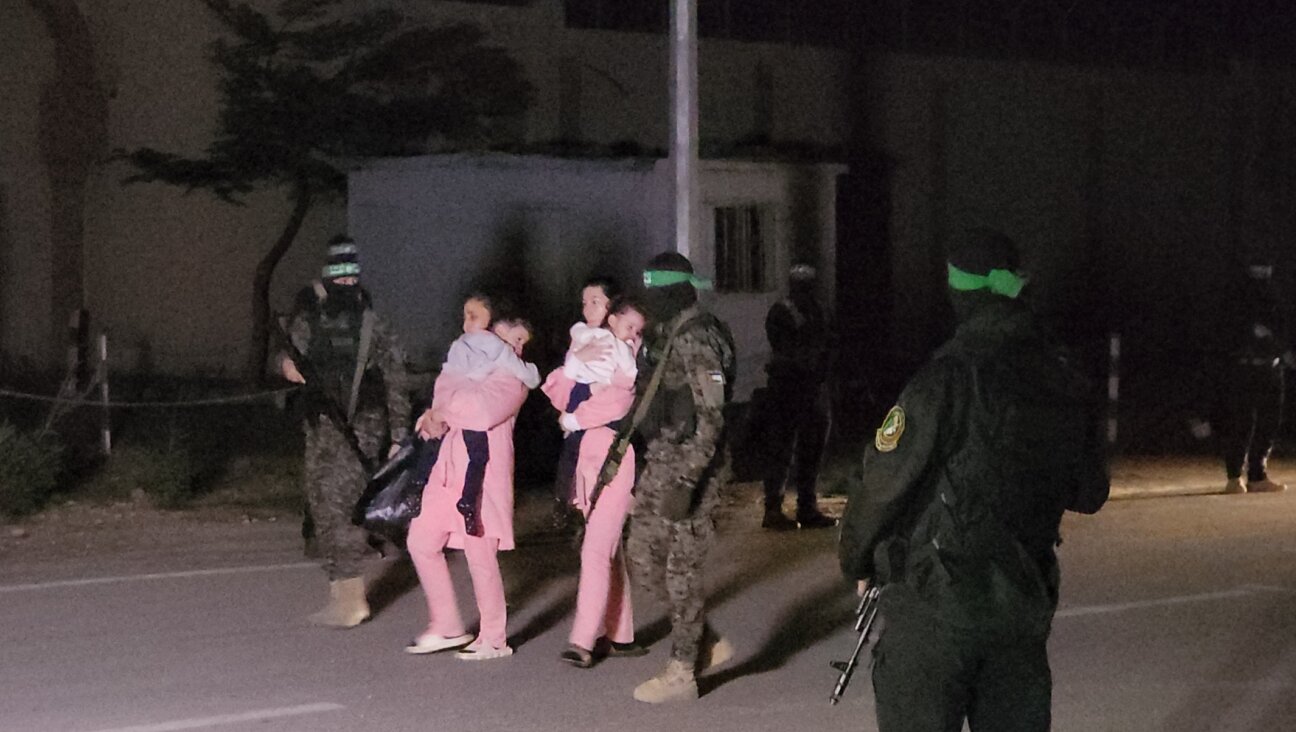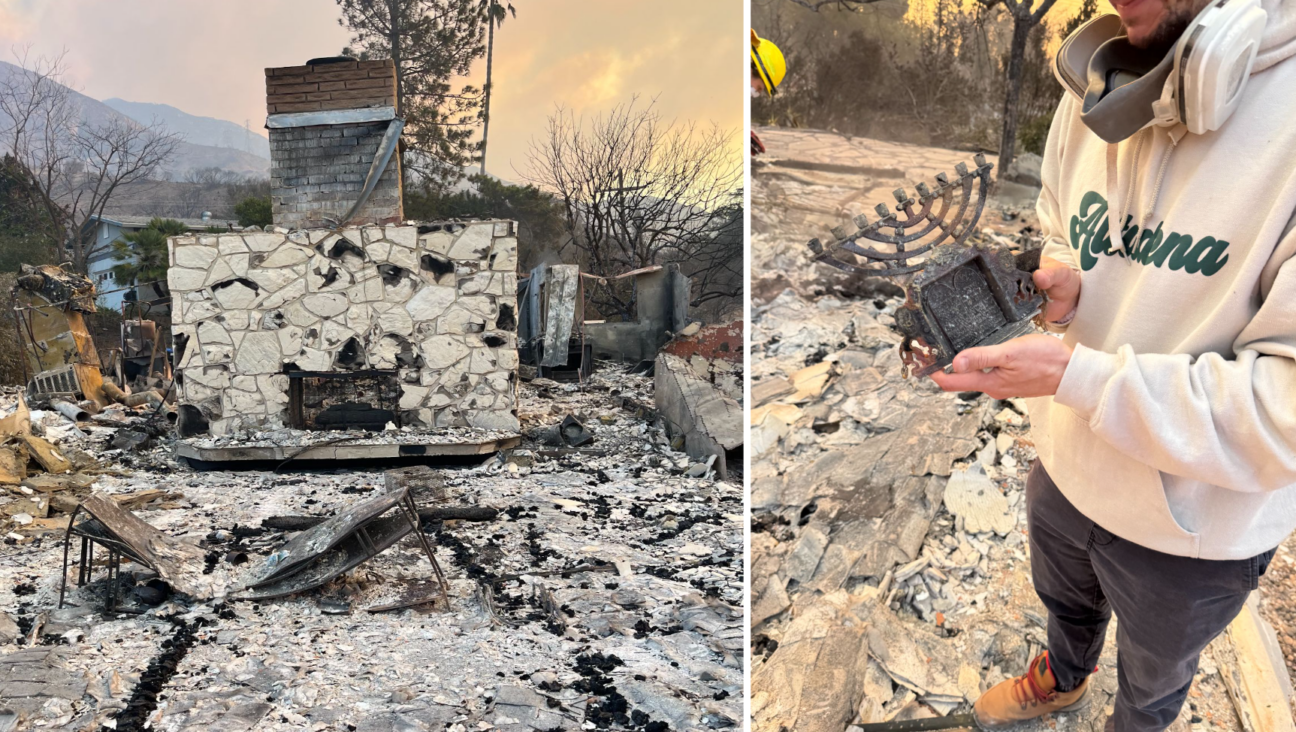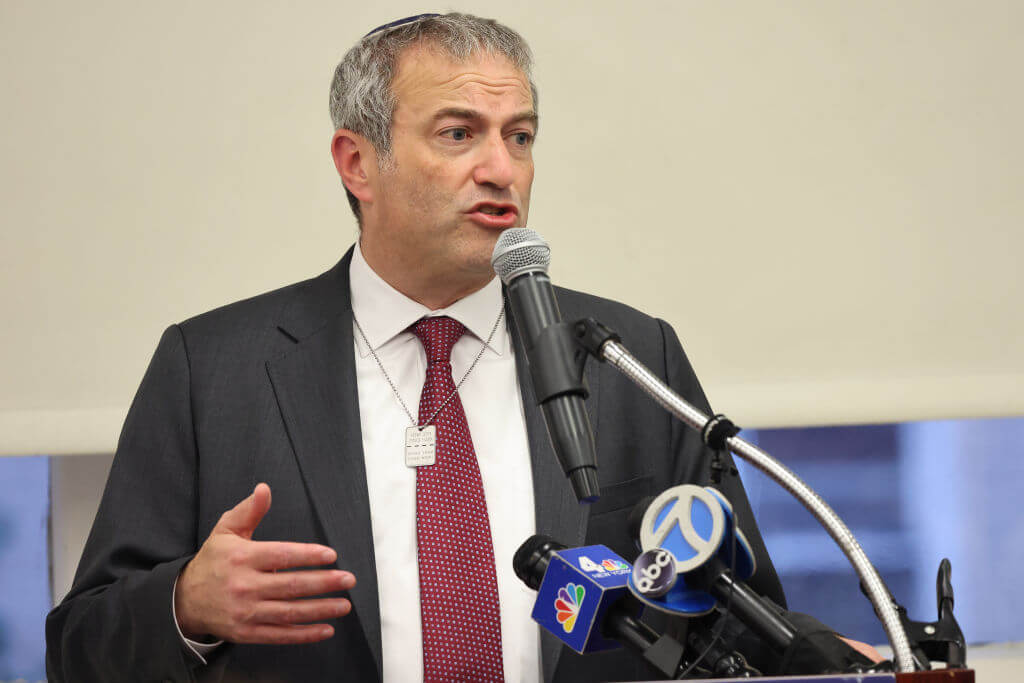Meet David Wise, the Grandma You Never Knew
David Wise sort of looks like your mother. He talks like some long-lost Eastern European relative. And he bakes like your grandmother.
Dressed as “Sarah Grabel” in a blue dress and flower-print apron — modeled on, and named for, his own great-grandmother — Wise makes knishes with his “audience,” taking them back to her kitchen, circa 1938, as a part of his one-man show, “Momma’s Knishes,” that plays nightly in the homes — and kitchens — of his host-audiences. “I like to tell people that I’m probably the only grandson in the entire world who talks about his grandmother more than she talks about him,” Wise said with a laugh.
Various sorts from around the New York and Philadelphia region hear about Wise’s show through word-of-mouth and his Web site (www.knish.org) and invite him into their homes ($600 on weeknights, $800 on weekends). Hosts assemble friends to experience an hour and a half with the 26-year-old actor, who refuses to depart from character as he ad-libs with the audience and runs through the routine that he workshopped for a year and began performing last year. Since then, he has brought Mrs. Grabel into more than a hundred homes.
In a recent performance at the Upper West Side apartment of Janice Meyerson and Ray Scheindlin, Wise — er, Mrs. Grabel — came shuffling into the dining room, her hair tied in a brown bun.
Mrs. Grabel turned to Meyerson. “I said you could have a few friends over,” Mrs. Grabel snapped in a light Yiddish accent. “Every 13-year-old in Brooklyn is here….”
Mrs. Grabel looked over the flock of 14 middle-aged New Yorkers assembled in the living room.
“Are you all in the eighth grade?” Mrs. Grabel asked.
Out of bubbe-inspired respect, each one nodded yes.
Before long, Mrs. Grabel’s audience was playing their part as eighth-graders, acting as if she were, indeed, a friend’s mother. Mrs. Grabel brought out a baking pan and asked one of the guests to grease it with corn oil. Another guest was given flour and a rolling pin and asked to roll some pre-made dough on the white cheesecloth covering the table. (“Go wash your hands!” Mrs. Grabel instructed.) Pre-cooked mashed potatoes seasoned with paprika and other spices were wrapped into the dough, placed on the pan and brushed with oil. All the while, Mrs. Grabel inflected her banter with Brooklyn and Polish wisdom.
But “Momma’s Knishes” is more than just an evening of Jewish mother shtick. Wise attempts to bring his character to life.
As the “guests” sit hungrily around the living room, the aroma of the baking knishes wafting in from the kitchen, Mrs. Grabel gets into the murky immigrant life of Brooklyn Jews in 1938. She talks sadly about her unhappy sister Rose and brother-in-law Abe. As she reads a nostalgic letter from her mother — still in Poland — Mrs. Grabel is barely able to speak. But when the knishes are ready, Mrs. Grabel jumps up and serves them like the supreme guardian of family food and ritual.
“One more second, and I would have burst out crying,” Scheindlin said when the show ended, after everyone had eaten their knishes.
Wise was on a cruise with his family in 2002 when he came up with the idea for the show. With nothing better to do, he began taking down family histories from his relatives. He was told the legend of his great-grandmother, known for her sublime knishes. Wise filled out the role with Wise and Grabel family lore.
As Scheindlin and Meyerson’s friends milled around over dessert and surplus knishes, everyone agreed the performance had been evocative.
There was only one complaint. Mrs. Grabel had come to the apartment with her dough already made and the potatoes ready to be baked. “We didn’t really get a recipe,” Scheindlin lamented.
One of Scheindlin’s friends laughed: “With those old mothers, you never do.”
A message from our Publisher & CEO Rachel Fishman Feddersen

I hope you appreciated this article. Before you go, I’d like to ask you to please support the Forward’s award-winning, nonprofit journalism so that we can be prepared for whatever news 2025 brings.
At a time when other newsrooms are closing or cutting back, the Forward has removed its paywall and invested additional resources to report on the ground from Israel and around the U.S. on the impact of the war, rising antisemitism and polarized discourse.
Readers like you make it all possible. Support our work by becoming a Forward Member and connect with our journalism and your community.
— Rachel Fishman Feddersen, Publisher and CEO























